A futuristic agenda for India & Canada
India can draw Canada in a new direction – away from its trans-Atlantic fixation, into the Indo-Pacific and a tech and resources partnership that will benefit both democracies
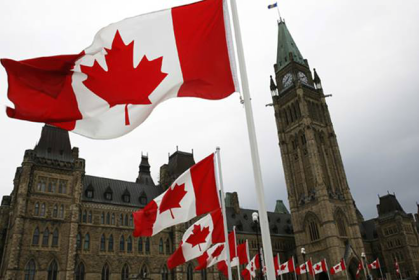 Courtesy: Financial Express
Courtesy: Financial Express
India can draw Canada in a new direction – away from its trans-Atlantic fixation, into the Indo-Pacific and a tech and resources partnership that will benefit both democracies
 Courtesy: Wikipedia
Courtesy: Wikipedia
India’s human spaceflight programme calls for a strong symbiosis between the country’s private sector, defence, and civilian agencies. The focus should be on indigenous development to preserve strategic autonomy
 Courtesy: Global Environment Facility
Courtesy: Global Environment Facility
Since Independence, India has been consumed by its domestic priorities. Now, with increasing integration with the world and a huge stake in global stability, it is time to focus on the global commons. India has a seat on the hightable to design and shape the rules for the governance of the global commons. In this special Independence Day Briefing, Gateway House examines India’s engagement with four global commons – technology, outer space, cyber and the oceans – and makes recommendations on how best they can be governed for our collective future.
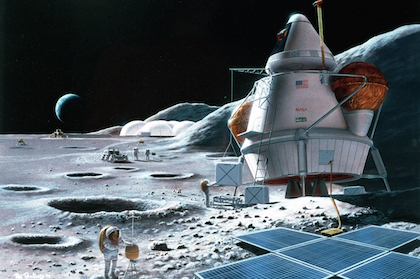 Courtesy: NASA/SAIC/Pat Rawlings
Courtesy: NASA/SAIC/Pat Rawlings
Ownership of lunar artifacts – objects left behind by space missions – will become a vexing issue as the international footprint on the Moon grows. Such archaeological objects may be designated ‘national heritage’, but the site on which they exist ought to remain ‘a global common’, and not become a point of territorial contestation. The Moon needs to be managed by global consensus, prudence and realism.
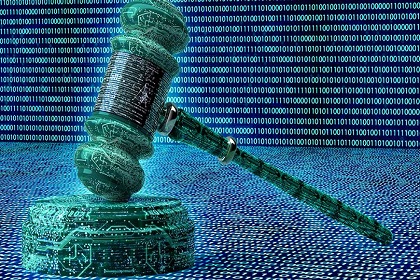 Courtesy: PC Magazine
Courtesy: PC Magazine
A massive technological revolution is in the offing in the next 20 years, with its maximum impact being on the future of work. Artificial Intelligence and robotics will change how the labour market operates and governments will have to review ethical standards for emerging technologies. India can show the way in creating inclusive economic growth
 Courtesy: National Museum of the U.S. Air Force
Courtesy: National Museum of the U.S. Air Force
Washington is planning to integrate its military space operations. Each arm of the United States Armed Forces has had a space command until now but uniting these discrete units into a new Space Force is a step ahead. The U.S.’ big-picture ambition is ‘full spectrum battle-space dominance’ and the contest to achieve it has implications for the defence and space industry
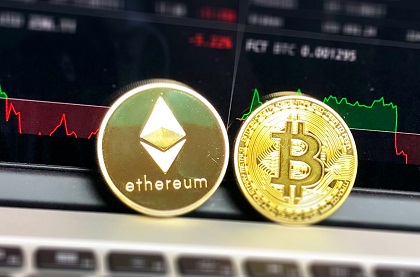 Courtesy: Pexels
Courtesy: Pexels
On the face of it, these digital or virtual currencies seem to be a brave new way to transact business or make an investment, but they also have inherent risks. A T20 proposal is seeking that the G20 devise a regulatory framework that places them on a level playing field with other financial instruments
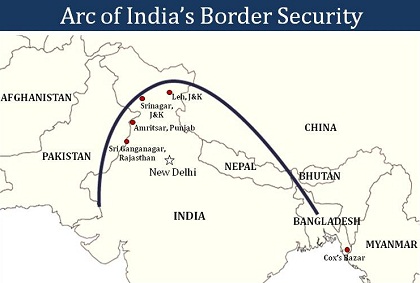 Courtesy: Gateway House
Courtesy: Gateway House
Border regions and communities, some of them far from the heartland, constitute India’s first line of defence, a critical link in its national security. India’s 15,000-km borders touch seven neighbouring countries: Afghanistan (abutting Gilgit), Pakistan, Nepal, Bhutan, China, Bangladesh, Myanmar. Border regions have their own local dynamics, often shaped by subnational and religious identities that do not necessarily align neatly with political borders. Some also serve as flourishing corridors for illegal smuggling of goods and humans. Technology plays an important role in better protecting borders, but in some cases it has made borders obsolete. Despite their importance, border regions do not receive the full attention of the Indian mainstream, except when border tensions arise.
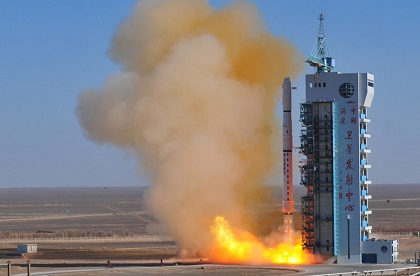 Courtesy: Chinanews
Courtesy: Chinanews
Pakistan is about to launch two military satellites in June with aid from China. It is pursuing its renewed space programme, using the same clandestine tactics it used for developing its atomic programme
 Courtesy: ESO/G. Lombardi (glphoto.it)
Courtesy: ESO/G. Lombardi (glphoto.it)
Modern astronomy will stimulate scientific, technological, economic and human resource development—all high priorities for India. New Delhi should exploit its proximity to the ‘Roof of the World’ to advance its geopolitical interests